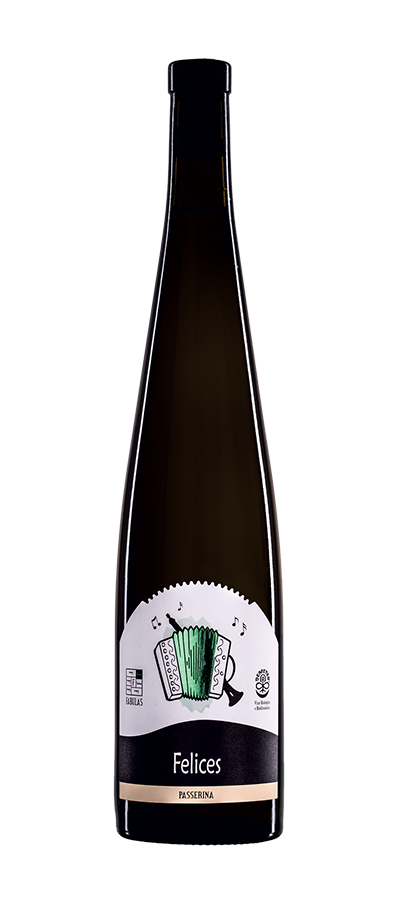Fabulas 'Felices' Passerina

| Bodega | Fabulas |
| Denominación | Terre di Chieti IGP |
| Estilo de vino | Vino Blanco Seco Crujiente |
| Cosecha | 2022 |
| Cierre de botella | Corcho |
| Viticultura | Biodinámico |
| Alcohol por volumen | 13% |
| Volumen | 750ml |
| Potencial de envejecimiento desde cosecha | < 5 Años |
| Envejecimiento | Barril de acero inoxidable |
Notas de degustación
Vino natural blanco mineral fresco con carácter especiado. Color pajizo brillante con fina lágrima. Nariz exuberante con, tras remolino, flor de fruta blanca silvestre y mucha mineralidad. Entrada fresca con ácidos crujientes y una sorprendente cantidad de fruta en una textura elegante. Refrescantemente rico. Vino de aperitivo perfecto, con verduras marinadas crudas del mar y verduras afrutadas, así como ensaladas de queso fresco (de cabra). Temperatura de servicio: 10°C.
Wine Story
The vineyards of the Fabulas winery are located in the municipality of Pretoro, 602 metres above sea level with its back to the Majella National Park. You can really feel the in-flow of the mountain massif that gives its name to the park. On the front side, just 35 km away, is the Adriatic Sea. The climate is strongly influenced by these two elements, with strong temperature differences between day and night.Fabulas is a collaboration between a few farmers, friends and a fantastic winemaker. Their attention and care goes not only to winemaking, but also to the earth. The sheep provide natural and intelligent control of the spontaneous native flora and natural fertilisation, bringing the animal spirit into the vineyard. Mechanical tillage is kept to a minimum. The hillside location of the vineyards makes it possible to understand that at the level of plant health, few interven-tions are needed and only related to the use of copper and sulphur when absolutely necessary.